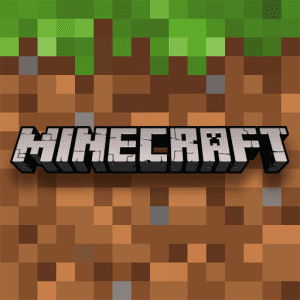How Gaming Can Improve Problem-Solving Skills


Unlocking the Power of Games: How Gaming Can Improve Problem-Solving Skills


Introduction
Gaming is often seen as a form of entertainment and escapism. However, it also offers significant benefits beyond mere enjoyment. One such advantage is the ability to enhance problem-solving skills. In this article, we will explore how games can improve your problem-solving abilities, provide practical tips to maximize their impact, and highlight the importance of gaming as a valuable cognitive exercise. So, let’s embark on a journey into the world of problem-solving through gaming!
1. Stimulating Critical Thinking
Games often present players with complex challenges that require critical thinking. By engaging in these mental exercises, gamers develop the ability to analyze situations, assess different options, and make strategic decisions. Whether it’s solving puzzles, navigating intricate mazes, or strategizing in a real-time strategy game, critical thinking is a fundamental skill honed through gaming.
2. Encouraging Adaptability
Many games feature dynamic environments and unexpected obstacles. To succeed, players must quickly adapt their strategies to overcome new challenges. This fosters adaptability, a crucial skill in problem-solving. Whether it’s adjusting to a sudden change in the game’s mechanics or devising alternative approaches to progress, gamers learn to think on their feet and adapt their problem-solving methods accordingly.
3. Enhancing Creative Problem-Solving
Games often reward players for thinking outside the box and finding creative solutions. This encourages gamers to explore unconventional approaches and nurtures their creativity in problem-solving scenarios. For example, in open-world games, players are often presented with quests or missions that can be completed in various ways, allowing them to exercise their creative problem-solving skills.
4. Developing Analytical Skills
Games frequently involve analyzing and interpreting complex information, such as maps, statistics, or puzzles. This constant engagement with data improves players’ analytical skills and their ability to draw logical conclusions. For instance, in mystery or detective games, players must gather clues, analyze evidence, and draw inferences to solve intricate cases, which hones their analytical thinking abilities.
5. Practicing Decision-Making
Games often require players to make decisions under pressure. Whether it’s choosing the right weapon in a fast-paced shooter, allocating resources in a strategy game, or making strategic moves in a turn-based RPG, gamers develop effective decision-making skills through repeated practice. They learn to assess the available options, consider potential outcomes, and make informed decisions that impact their progress in the game.
6. Fostering Perseverance
Challenging games can be frustrating, but they also teach perseverance. Players learn to persist in the face of obstacles, try different approaches, and learn from their failures—an essential skill for problem-solving in real-life scenarios. Overcoming difficult levels, conquering tough bosses, or solving complex puzzles requires perseverance, resilience, and the determination to keep trying until success is achieved.
7. Collaboration and Problem-Solving
Multiplayer games promote teamwork and collaboration, allowing players to tackle challenges collectively. This cultivates effective communication, cooperation, and collaborative problem-solving skills. In cooperative games or team-based competitions, players must work together, leveraging each other’s strengths and expertise to overcome obstacles, achieve objectives, and solve complex problems.
8. Transferable Skills
The problem-solving skills developed in games can extend beyond the virtual realm. The ability to analyze, think critically, and adapt to new situations is highly transferable to real-life problem-solving scenarios. The skills honed through gaming can be applied to academic challenges, professional tasks, and everyday life situations, making gamers well-equipped to tackle a wide range of problems with confidence and efficiency.
9. Balancing Challenge and Fun
To maximize the impact of games on problem-solving skills, strike a balance between challenging yourself and enjoying the gaming experience. Seek out games that provide a healthy level of difficulty without becoming overly frustrating. Finding the right balance ensures that you remain engaged, motivated, and continuously challenged, fostering continuous growth in your problem-solving abilities.
10. Reflect and Learn
Take the time to reflect on your gaming experiences. Consider the problem-solving strategies you employed, the decisions you made, and the outcomes. Learn from both your successes and failures to refine your problem-solving approach. Analyze how you could have approached a situation differently, consider alternative solutions, and apply those lessons to future gaming scenarios and real-life challenges.
11. Explore Puzzle and Strategy Games
Puzzle and strategy games are particularly effective in honing problem-solving skills. These genres often present players with intricate challenges that require careful planning, analysis, and problem-solving prowess. Sudoku, chess, logic puzzles, and strategy-based video games provide ample opportunities to exercise your problem-solving muscles and sharpen your mental acuity.
12. Embrace Diverse Game Genres
Don’t limit yourself to a single game genre. Explore a wide range of games to expose yourself to different problem-solving scenarios. Each genre offers unique challenges that can broaden your problem-solving abilities. From action-adventure games that require quick thinking and reflexes to simulation games that demand strategic planning, diversifying your gaming experiences broadens your problem-solving repertoire.
13. Seek Challenging Gameplay
While it’s important to find games you enjoy, don’t shy away from challenging gameplay. Embrace difficult levels or modes that push your problem-solving skills to the limit. The greater the challenge, the more you’ll grow. By embracing challenging gameplay experiences, you stretch your problem-solving abilities, expand your comfort zone, and discover new strategies and approaches that lead to breakthroughs.
14. Engage in Game-Based Learning
Game-based learning platforms and educational games offer a purposeful approach to problem-solving. These games are designed to cultivate specific skills while providing an enjoyable learning experience. Whether it’s a physics-based puzzle game or a language-learning adventure, game-based learning combines problem-solving with educational content, allowing you to acquire knowledge and develop problem-solving skills simultaneously.
15. Join Gaming Communities
Engage with gaming communities, forums, or social media groups to connect with fellow gamers. Discussing strategies, sharing experiences, and seeking advice can enhance your problem-solving skills through collective wisdom. Gaming communities offer valuable insights, alternative perspectives, and a supportive network of individuals passionate about gaming and problem-solving.
Conclusion
Games provide a rich environment for improving problem-solving skills through critical thinking, adaptability, creativity, analytical thinking, decision-making, perseverance, collaboration, and transferable skills. By embracing challenging gameplay, seeking diverse genres, and reflecting on your experiences, you can unlock the full potential of gaming as a tool for problem-solving enhancement. So, pick up your controller or sit down at your computer and start solving your way to success in both virtual worlds and real-life challenges!








